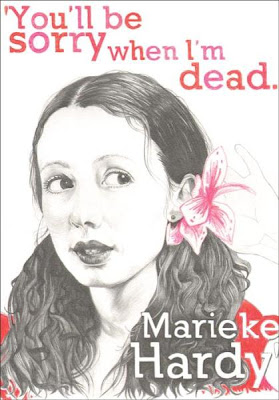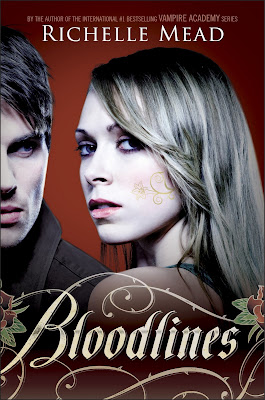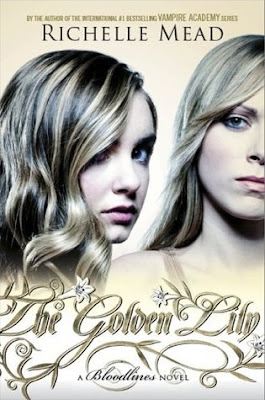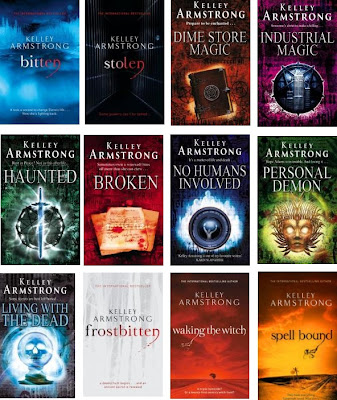
I recently read (and loved!) Shiloh Walker’s stand-alone paranormal romance novel, ‘
The Missing’. I had been meaning to read a Shiloh Walker novel for some time, based on the solid recommendations of many fellow paranormal-romance lovers who highly recommend her work.
So I decided to give her long-running paranormal erotica series, ‘The Hunters’ a read. This series is currently eleven books deep, and have recently been re-released to include two-stories-for-one with Amazon.
I was really excited to delve in Walker’s world, especially with the memory of ‘The Missing’ fresh in my mind. Sadly, I found these books to be quick, throw-away reads with little substance but lots of smuttiness.
Declan and Tori:
She was just doing her job, tracking down a nutcase who was stalking a young dancer. And then the unspeakable and impossible happened. She was bitten.
A newly turned vampire, Tori is alone and starving and she doesn't know what to do. But she knows who to turn to—gorgeous, mouthwatering Declan—a police detective who has a few secrets of his own.
Tori is a private investigator on the hunt for a psychotic stalker. This guy is a real nut-job, believing himself to be a ‘vampire’ and frightening his victim so much that she’s also convinced of his fanged bloodthirstiness.
But it’s too late for Tori when she learns the truth – vampires are real, supernaturals stalk the night and she has just been bitten . . . and is turning into a vampire.
She turns to the person she trusts most in the world – a local cop called Declan who she has been lusting after from their first meeting.
Declan can smell the change coming on Tori, because he is a werewolf. He can also smell that she is his mate, his to protect and save from the crazed vampire who is hell-bent on making her his master. Luckily, Declan is a werewolf and can offer a helping-hand with Tori’s transition . . . while at the same time succumbing to their mating bond.
“. . . Humans hate change. Hate trying the unknown.” She led him to the broken down recliner in the corner and curled upon his lap. “Why are you telling me all of this?”
Running one hand down her back, savouring the warmth of her flesh under the silk shirt she had snagged from his closet, Declan said, “I do not know what it is like to live with the monster you now have inside you. But I understand not being completely human. You’re not alone.”
He could feel her smile against his chest, feel the warm caress of her breath through the shirt he wore when she whispered, “I know.”
- Declan & Tori
Walker’s first book in ‘The Hunters’ series feels like half a novel. Reader’s are instantly on the back foot because Delcan and Tori have known (and worked) with each other for months already. Her as a PI, and he has her police informant. They have been fighting a burning attraction since their first meeting, or so we’re told.
It’s hard to play catch-up with this couple and really feel the attraction that Walker tells us is scorching between them. Honestly, it felt like Walker was rushing their romance so she could jump right into their bedroom sport (of which there is PLENTY).
I have no problems with a good bit of erotica. And paranormal-erotica is a particular favourite of mine . . . but even I need a bit more build-up and back-story before being thrown into such scorching sex scenes. It felt like Walker did a slight cheat by putting all of Declan and Tori’s attraction down to months of pent-up sexual frustration and yearning.
Things get particularly heated and ménage when Declan takes Tori to a vampire master friend of his, to show her the ropes. Elijah Crawford feels an instant attraction to Tori . . . and the three of them engage in some more bedroom shenanigans.
Once again, instant attraction + lots of sex didn’t really equal ‘hot’ to me. It all felt rushed, and slightly dirtily-lascivious in the wake of Declan and Tori’s bond (effectively a marriage). And I again felt like Walker copped-out by putting it down to (yet another) instant attraction between Eli and Tori. . .
Having said that, I was very intrigued by Eli. He is a very old, very lonely vampire – and while he enjoys his ménage with Declan and Tori, he also harbours a burning jealousy for what the two of them share. Knowing that Eli’s novel was #2 in ‘The Hunters’ series kept me going when I was experiencing some serious scepticism . . .
Eli And Sarel:
After three long centuries of aching loneliness, Elijah Crawford, Hunter of the Council, has finally found a woman. Maybe she can replace the obsession he has for Torrance Reilly, the wife and lover of his best friend.
Sarel is a lean, red-haired, wild-eyed witch with a soul to match his. She has a thirst for justice, and a yearning for a love to fill the void inside her. Sarel has been searching for Elijah. She is here now, prowling his grounds, waiting to get into his house.
Sarel has come to kill him.
Elijah Crawford is a centuries-old vampire, but he’s lonely and bored as hell. For years now he has watched his best friend reap the benefits of love with the women Eli also harbours an intense lust for. But what Declan and Tori have is not meant for Eli. And when a witch, hell-bent on misguided vengeance, sets out to kill him he almost welcomes the release of death-oblivion.
What he doesn’t count on is an intense attraction to the witchy hellion, and what he is willing to do to keep her, forever.
I quite liked the character set-up for Eli in book #1. He’s that lovely sort of tortured hero – ancient and lonely and on the brink of ending his mortality.
This series started to perk-up for me when Eli meets his mate in the most unusual of circumstances – with her hell-bent on murdering him.
But then Walker lost me again by skipping the novel ahead five years and (conveniently) saying that both Eli and Sarel had been pining for one another throughout those five years. . . urgh. Half a decade worth of wanting and lust and Walker just breezed over it and (once again) went straight to the sex.
I was really impressed with Shiloh Walker’s stand-alone paranormal romance thriller ‘The Missing’. That was a novel of sweet yearning and complex characters, and I thought that Walker’s first forays into paranormal romance would follow along similarly heatedly-multifaceted plot lines. Sadly, no. The first two novels in her ‘The Hunters’ series are cheap tricks; full of smut but little else. Admittedly, the first five novels of the series were published by Ellora’s Cave (notoriously smutty), while the last three books (with slightly naffier front-covers) are Berkley Sensation publications. It does look as though the series was improved over time . . . . but, honestly, I can’t be bothered wading through books 3 – 7 to get to the good stuff.
Admittedly, Walker knows what she’s doing when it comes to writing bedroom sport. Those scenes were gratuitously sexy (and if you want a bit of easy, sexy reading then I highly recommend) – but when there’s no characterization or plot to back it up, the books deteriorate into cheap erotic thrills.
2/5




























